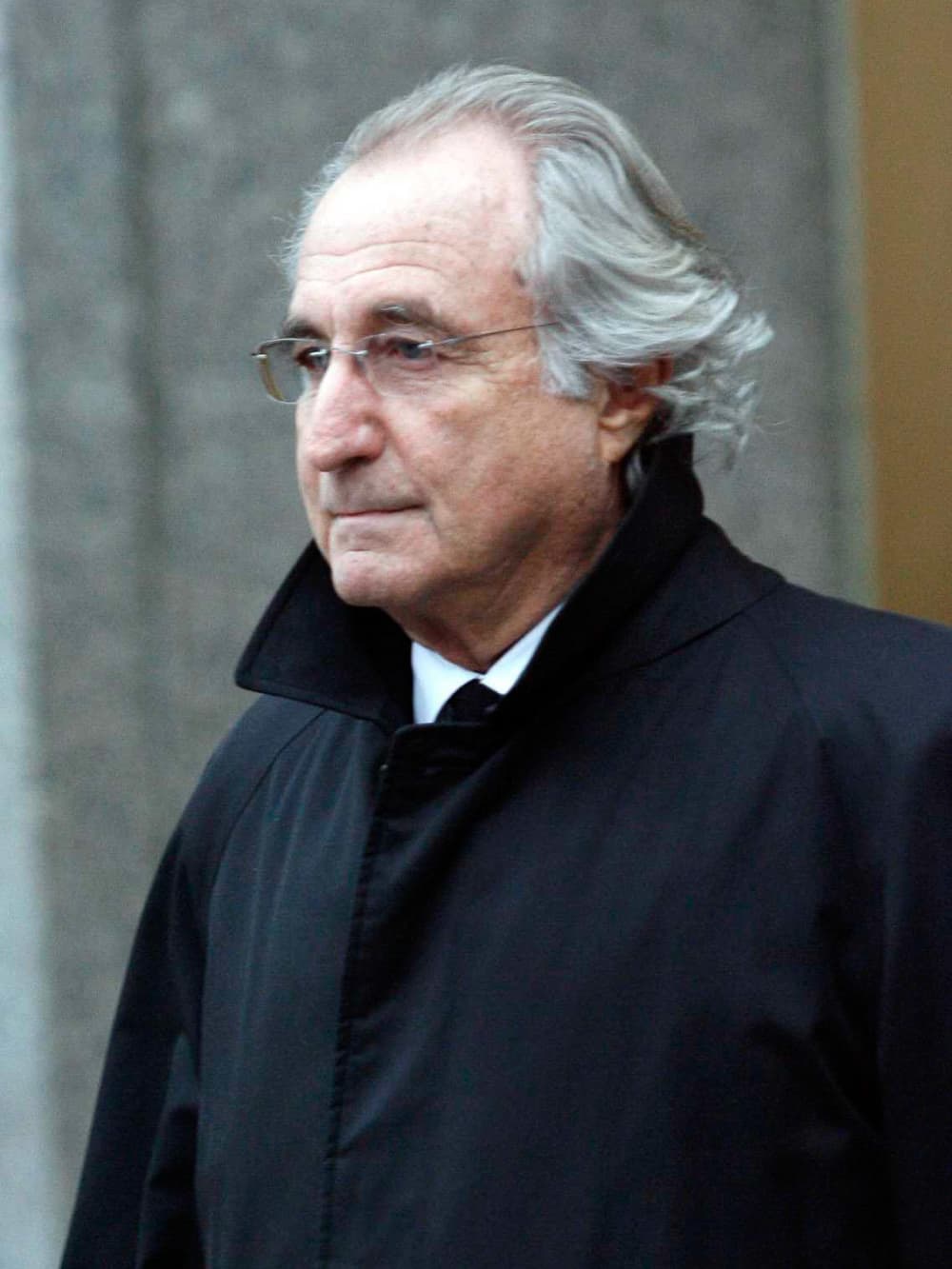money matters
A soulless market: NYT financial analyst Diana Henriques visits UT, speaks onfinancial trust and mechanics behind Madoff's epic scheme
 Photo by Stuart Ramson/AP
Photo by Stuart Ramson/AP- Diana Henriques
A Ponzi scheme works like this: I open an investment firm. You hear my pitch, like what you hear, cut me a check and trust I’m investing it for you. Instead of using your money to buy shares of a wide range of safe, sound investments that will produce periodic dividend checks, I spend your money.
But, I have a plan! Next month, when you are expecting your check, I simply use the investment capital from my new investors to pay you off. This goes on until I get caught—or run out of money.
In order to run a Ponzi scheme, the man at the top needs to fortify and expand his circle of trust. This talent, according to Diana Henriques, a New York Times senior financial analyst speaking at the Massey Prize Symposium on Friday, allowed famed schemer Bernie Madoff to perpetrate the first truly global fraud on a group of people who thought they were doing everything right.
The people of Bernie Madoff’s client list were portrayed at the beginning of the scandal as a group of stuffy, old-money pinchfaces. They were greedy yacht-owning types who had had a few dowager dollars shaken loose when they reached for the golden apple—a deal that was “too good to be true”—and got burned by the promise of easy money.
But Henriques explained that Madoff did not arouse suspicion because his returns were too high (his customers could have made more money investing in several other mutual funds ), but instead his returns were too consistent.
“That was what he was promising: consistency,” she asserts. Henriques dismisses the characterization of Madoff's clients as blinded by simple greed, quoting investment fraud expert Pat Huddleston: "If something sounds too good to be true, you're probably dealing with an amateur." The people he duped were taken in by an incredibly sophisticated operator at a moment when they were terrible desperate to trust someone.
If something sounds too good to be true, you're probably dealing with an amateur.
One of the themes of Henriques’ talk was that fear and trust were twin factors that drove investors into Bernie Madoff’s Ponzi scheme. For years, the conventional wisdom had been to buy a house, let it appreciate value and then sell it once you’d retired and live off the proceeds. With the collapse of the housing market, millions of people saw their retirement plan implode. They needed someone who they could trust, someone who would take their money and secure their future with it—and some of them had the connections and the resources to put their faith in Madoff.
The Securities and Exchange Commission investigated Madoff five times—not for operating a Ponzi scheme, but for front running. The turnover at the SEC and the ever-shrinking amount of funding they were being given did not given them the resources to put all of the pieces together.
Henriques mentioned that reading through the accounts of the investigation, it became clear to her that several times Madoff could have been caught if only someone had made one more phone call, followed up on one more lead. Despite this, she said she is again hearing financial commenters clamor for deregulation.
“Never have I seen financial amnesia descend so quickly,” Henriques says. She admits that she was once a proponent of the “full disclosure regime,” those who believed that open records laws would keep businesses accountable, but she now sees how that isn’t enough to stop financial catastrophes. She recommends strengthening the powers of regulatory agencies, requiring that investment firms hire a third party to hold capital and investments to verify that everything is on the level.
After the lecture someone asked if Madoff thought he wouldn’t get caught, and Henriques said Madoff’s mind had drifted into magical thinking whenever he imagined the fraud coming to light. She said he imagined a disaster like 9/11 would happen and that everyone he cheated would be dead, and he would be dead, and it wouldn’t matter.
Interestingly, when asked why he thought Bernie Madoff got away with it, holocaust survivor and historian Elie Weisel—one of the people Madoff swindled—said that the criminal's imagination always exceeds the innocent victim's.
Henriques explained that the regulatory agencies couldn’t imagine that Madoff was running a Ponzi scheme and that, due to the increasingly complicated nature of financial instruments, it was nearly impossible for anyone to catch the red flags in all of the tiny print of the contracts they signed. Henriques noted that his victims couldn’t spot the red flags because they had already decided to trust him, to trust his international client list and reputation, and he used this trust to rob them of financial stability.
It would be easy to say that the moral of the Bernie Madoff story is that bad things happen to good people, but really, bad things happen to good people when amoral systems (like “capitalism” or “the free markets”) and the people within them are expected to self-regulate—and treated as if they will or could.
If the “market” had a soul or a conscience or could have statistics fed into it about how many people it was killing, disenfranchising or shortening the lifespan of, then maybe it would care about human beings. But it doesn’t. It is a machine that makes money. It doesn’t protect civil rights or create democracy or whiten your teeth.
Human beings have a duty to check the boldness of their financial institutions by severely regulating them, by scrutinizing their actions and by protecting consumers from fraud. Because, after all, the American Dream is nothing if it can be stolen so easily.


